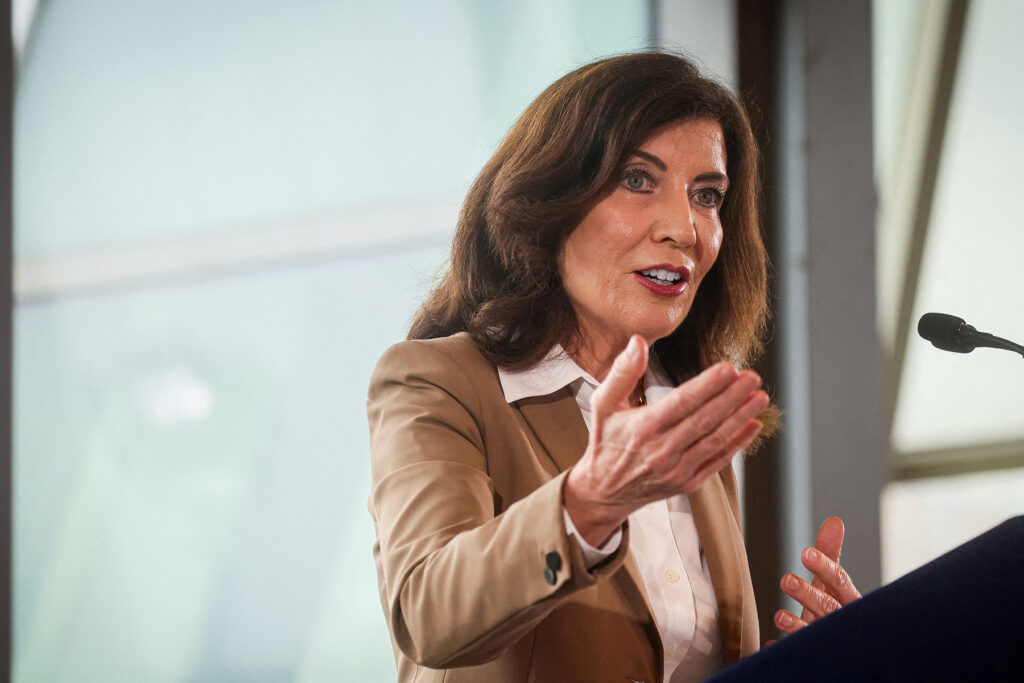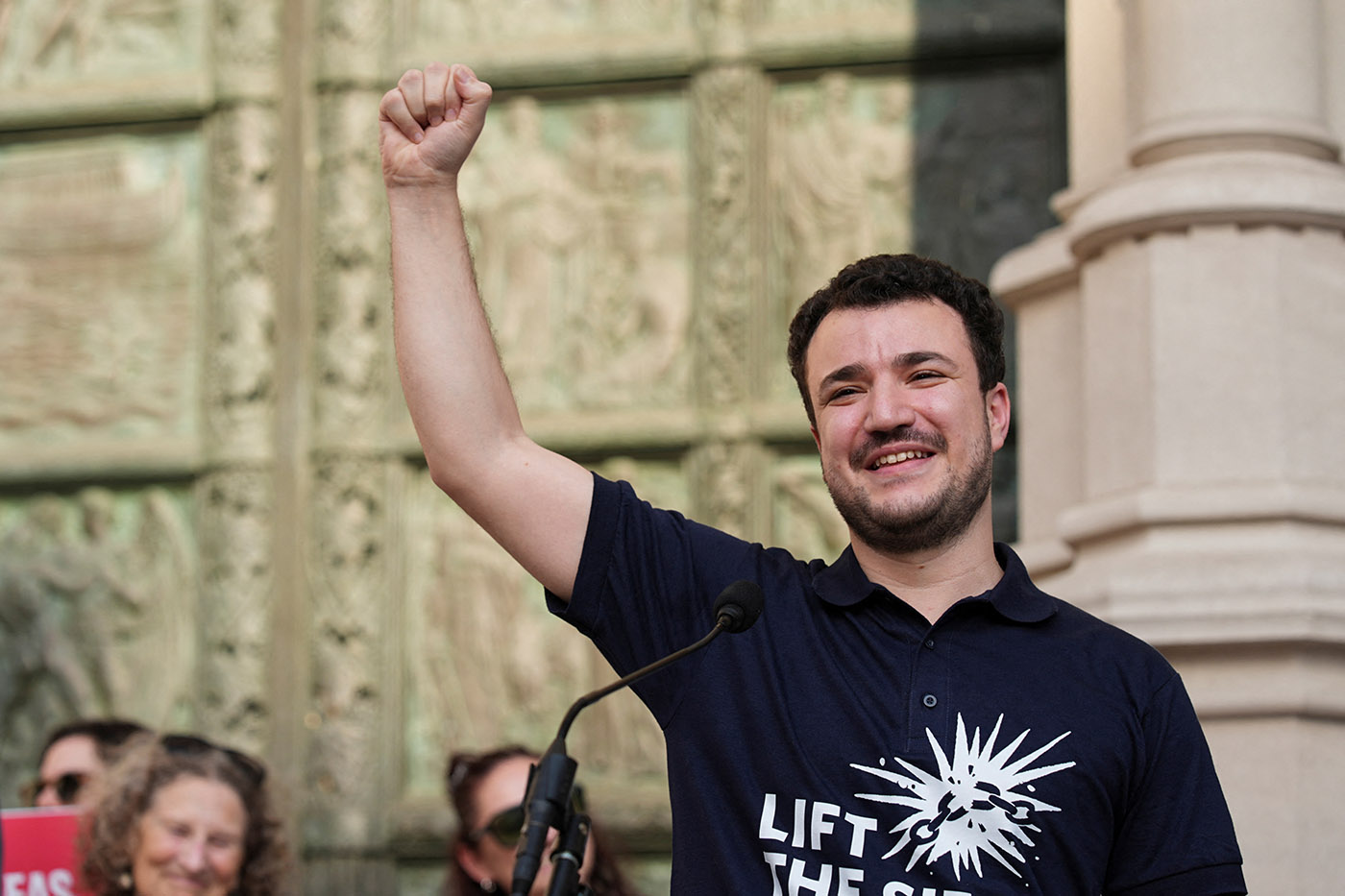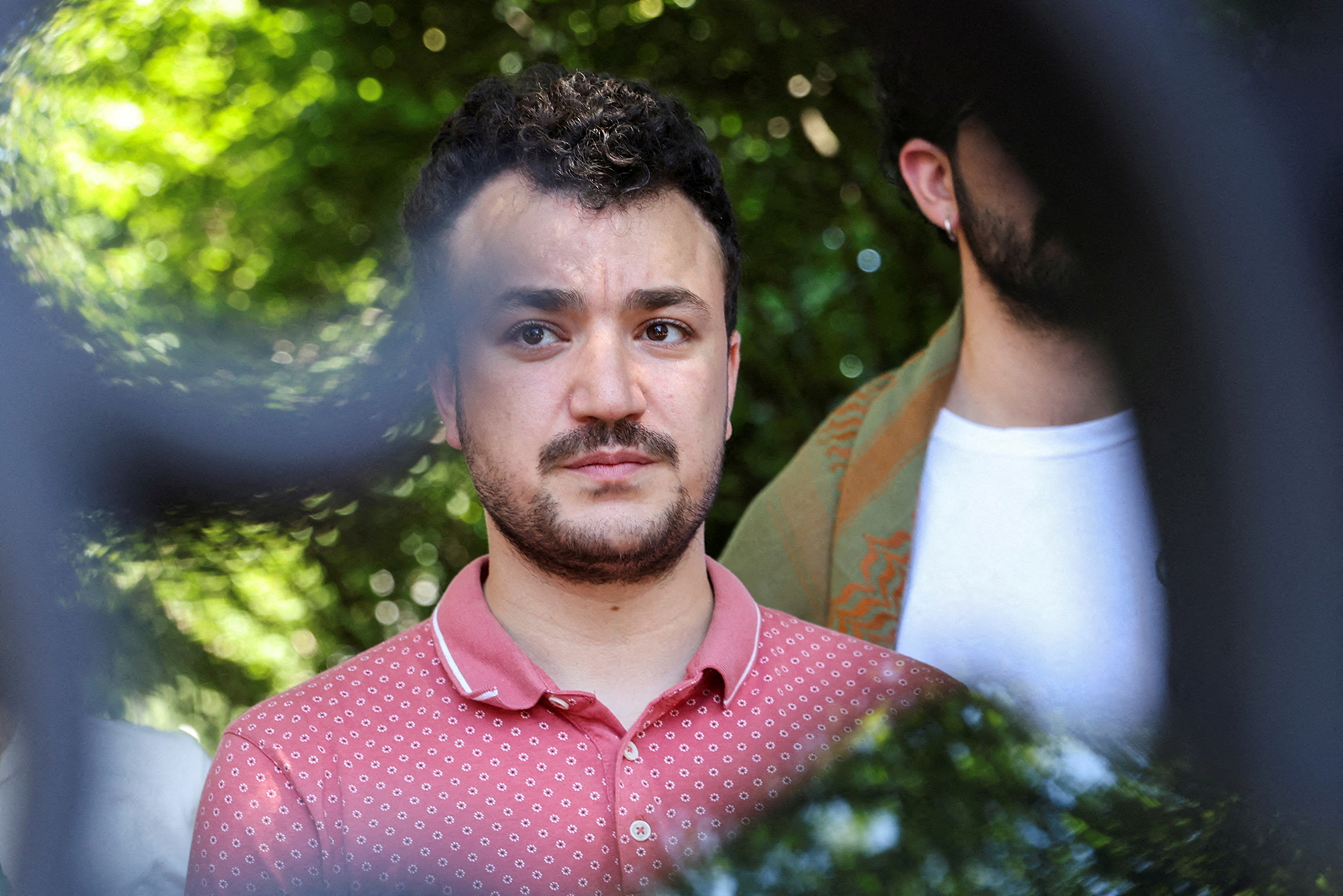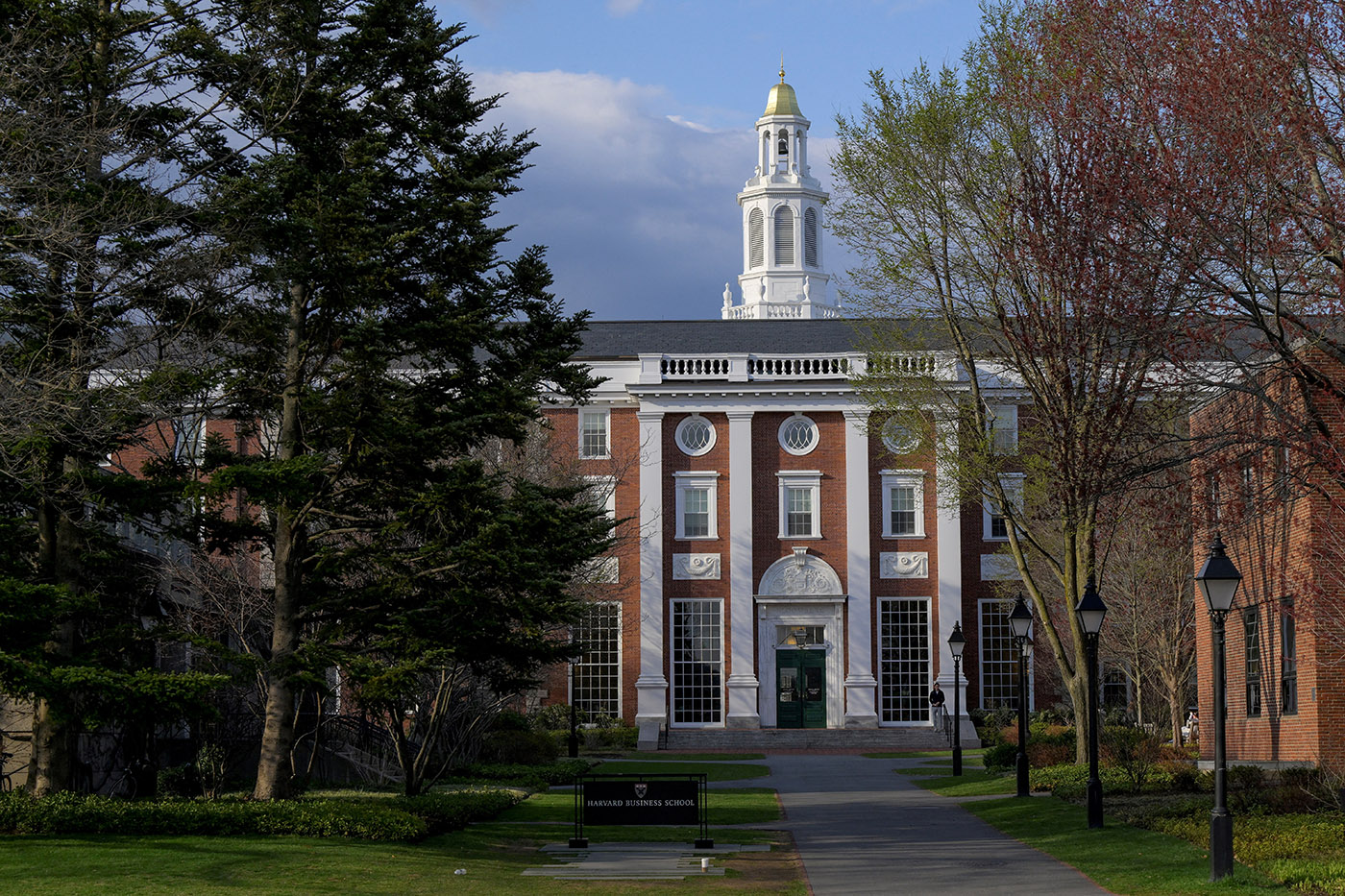ALBANY, N.Y. (AP) — An independent party will review antisemitism policies at the City University of New York, the nation’s largest urban public university system, Gov. Kathy Hochul announced Tuesday, as protests about the war between Israel and Hamas roil college campuses across the country.
Hochul, a Democrat, said the review will assess how the college system handles antisemitism complaints and will make recommendations on how administrators can better protect Jewish students and faculty. It will be conducted by Jonathan Lippman, a former chief judge of New York’s highest court.
The governor made the announcement a day after she visited Cornell University to pledge that state police would investigate online posts threatening violence against Jewish students at the private, Ivy League school in upstate New York.
The state’s review, though, will be aimed specifically at City University of New York, which has long been a hotbed of student activism in support of Palestinian human rights, and against Israeli policies regarding Gaza and the occupied West Bank.
Some activists voiced concern that the review could chill legitimate free speech rights and make people hesitant to express political opinions.
“I’m worried this is just another smokescreen to silence or undermine pro-Palestine activism during a time when it’s needed the most,” said Nerdeen Kiswani, a former leader of the campus group Students for Justice in Palestine.
Hochul said the investigation will include an assessment of antisemitism on the system’s campuses, how the schools investigate antisemitism and discrimination complaints, and will make recommendations on how to honor free speech rights while protecting people from discrimination and antisemitism.
“We will take on the antisemitism we have seen on college campuses. The problem didn’t begin with the weeks following the Oct. 7 attacks,” Hochul said, referring to Hamas’ bloody incursion into Israel. “It’s been growing on a number of campuses and seen most acutely in the City University of New York.”
A report based on the review is expected next spring.
Political tensions over the decades-old Israeli-Palestinian conflict have long run high at City University of New York schools, which include 25 campuses and almost a quarter-million students.
On Oct. 13, a pro-Israel member of New York’s City council was arrested after she brought a handgun to a student demonstration supporting Palestinians outside Brooklyn College, which is part of the CUNY system.
Some Jewish students have complained that superheated rhetoric at demonstrations questioning Israel’s right to exist has been antisemitic. Pro-Palestinian students have countered that they’ve been wrongly accused of hate speech.
Last spring, there was a furor in the news media over a commencement speech made by a graduating student at the City University of New York School of Law, in which she condemned Zionism and accused Israel of raining “bullets and bombs on worshippers, murdering the old, the young, attacking even funerals and graveyards, as it encourages lynch mobs to target Palestinian homes and businesses.”
Lippman said in a written statement that as a judge and lawyer, his focus “has always been first and foremost on fairness and equal justice.”
“That same sense of fairness, and freedom from intimidation, for Jewish students and all others in CUNY’s academic community, will be at the center of my review,” he said.
The City University of New York issued a statement saying that it would cooperate with the review.
“As an institution of higher learning and one of the country’s most diverse universities, CUNY has taken many steps to combat hate, discrimination and intolerance in all forms, important work which we continue every day,” the statement reads. “We will cooperate with Judge Lippman’s review as we work to build on the progress we’ve made.”
In 2016, after the Zionist Organization of America levied complaints of antisemitism against a campus group, Students for Justice in Palestine, CUNY’s chancellor convened a task force to investigate the claims.
The final report ultimately cleared the group of several allegations, noting it was wrong to link its anti-Zionist stance to antisemitism. But the damage inflicted by the monthslong investigation, which included repeated interviews with student activists, brought a cloud of suspicion that “effectively quelled Palestinian activism on campus,” according to Kiswani.
Eric Horowitz, a third year CUNY Law School student and a board member of the Jewish Law Students Association, said he had not once encountered antisemitism during his seven years within the CUNY system.
But as he has joined other anti-Zionist Jews in calling for a cease-fire in Israel, he said he has experienced a torrent of personal threats and backlash from pro-Israel groups.
“This is the kind of reaction that the governor’s actions are going to provoke,” Horowitz said. “You have elected officials who are threatened by the show of support for Palestine lashing out in careless and dangerous ways.”
Tags



